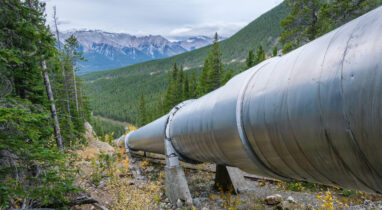New Western Canada poll results released today by Clean Prosperity show—once again—that Erin O’Toole and the Conservative Party of Canada should reconsider their opposition to carbon pricing.
The poll conducted in the 71 Conservative-held ridings in Alberta, BC, Manitoba, and Saskatchewan dispels the commonly-held notion that Conservatives would lose significant support among their base if they adopted carbon pricing. Instead, the poll found that two thirds of Conservative voters would support Erin O’Toole if he proposed a carbon pricing policy to help the party win government.
Further, the poll found that a carbon pricing policy that cuts income taxes could be a net vote winner for the Conservative Party.
“A conservative carbon pricing policy can be a vote winner for Conservatives in Ontario without costing the party seats in Western Canada,” said Michael Bernstein, executive director of Clean Prosperity.
This finding is noteworthy because polling conducted last year by Clean Prosperity showed that a carbon tax combined with income tax cuts could help the Conservative Party gain seats in the critical 905 battleground in Ontario. Our new polling in Western Canada shows that the party would not lose seats in Western Canada if it adopted this policy, making carbon pricing combined with income tax cuts a compelling way to win more seats in the next federal election.
“A conservative carbon pricing policy can be a vote winner for Conservatives in Ontario without costing the party seats in Western Canada,” said Michael Bernstein, executive director of Clean Prosperity.
“Poll after poll shows that Conservative voters, and voters who are considering voting Conservative, expect the party they vote for to have a credible climate plan. And most voters believe that a credible climate plan includes carbon pricing.”
Mr. O’Toole has committed to achieving Canada’s emissions reduction targets under the Paris Agreement, and there’s broad agreement—from conservative economists to Canadian oil company executives—that carbon pricing is the most efficient and affordable way to reach that goal.
Key Results of the Poll
In Western Canada:
- 66% of potential Conservative voters and 51% of Conservative voters agree that carbon pricing should be part of a credible climate plan.
- 67% of Conservative voters would support a Conservative carbon pricing policy if it increases the chances of the party winning government.
- 31% of potential Conservative voters, and 25% of Conservative voters, would be more likely to vote for the party if it had a credible climate plan.
Contact: media@cleanprosperity.ca




